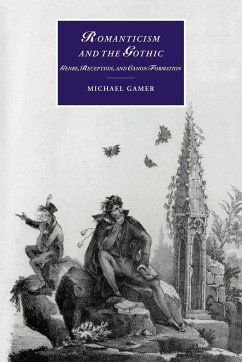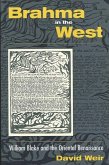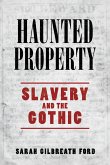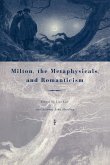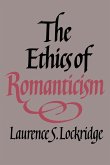The first full-length study of the relationship between Romantic and Gothic literature.
This is the first full-length study to examine the links between high Romantic literature and what has often been thought of as a merely popular genre - the Gothic. Michael Gamer offers a sharply focused analysis of how and why Romantic writers drew on Gothic conventions whilst, at the same time, denying their influence in order to claim critical respectability. He shows how the reception of Gothic literature, including its institutional and commercial recognition as a form of literature, played a fundamental role in the development of Romanticism as an ideology. In doing so he examines the early history of the Romantic movement and its assumptions about literary value, and the politics of reading, writing and reception at the end of the eighteenth century. As a whole the book makes an original contribution to our understanding of genre, tracing the impact of reception, marketing and audience on its formation.
Review quote:
'- this is a lucid and persuasive work that brings real illumination to the murky origins of the Romantic ideology.' The Nineteenth Century
'His careful scholarship and clear line of argument will undoubtedly inform continuing work on the subject.' Romanticism on the Net
'- Gamer's study is a highly interesting and thought-provoking piece of scholarship.' Zeitschrift für Anglistik und Amerikanistik
Table of contents:
Acknowledgments; List of abbreviations; A note on the text; Introduction: Romanticism's 'pageantry of fear'; 1. Gothic, reception and production; 2. Gothic and its contexts; 3. 'Gross and violent stimulants': producing Lyrical Ballads 1798 and 1800; 4. National supernaturalism: Joanna Baillie, Germany, and the Gothic drama; 5. 'To foist thy stale romance': Scott, antiquarianism, and authorship; Notes; Index.
Hinweis: Dieser Artikel kann nur an eine deutsche Lieferadresse ausgeliefert werden.
This is the first full-length study to examine the links between high Romantic literature and what has often been thought of as a merely popular genre - the Gothic. Michael Gamer offers a sharply focused analysis of how and why Romantic writers drew on Gothic conventions whilst, at the same time, denying their influence in order to claim critical respectability. He shows how the reception of Gothic literature, including its institutional and commercial recognition as a form of literature, played a fundamental role in the development of Romanticism as an ideology. In doing so he examines the early history of the Romantic movement and its assumptions about literary value, and the politics of reading, writing and reception at the end of the eighteenth century. As a whole the book makes an original contribution to our understanding of genre, tracing the impact of reception, marketing and audience on its formation.
Review quote:
'- this is a lucid and persuasive work that brings real illumination to the murky origins of the Romantic ideology.' The Nineteenth Century
'His careful scholarship and clear line of argument will undoubtedly inform continuing work on the subject.' Romanticism on the Net
'- Gamer's study is a highly interesting and thought-provoking piece of scholarship.' Zeitschrift für Anglistik und Amerikanistik
Table of contents:
Acknowledgments; List of abbreviations; A note on the text; Introduction: Romanticism's 'pageantry of fear'; 1. Gothic, reception and production; 2. Gothic and its contexts; 3. 'Gross and violent stimulants': producing Lyrical Ballads 1798 and 1800; 4. National supernaturalism: Joanna Baillie, Germany, and the Gothic drama; 5. 'To foist thy stale romance': Scott, antiquarianism, and authorship; Notes; Index.
Hinweis: Dieser Artikel kann nur an eine deutsche Lieferadresse ausgeliefert werden.

